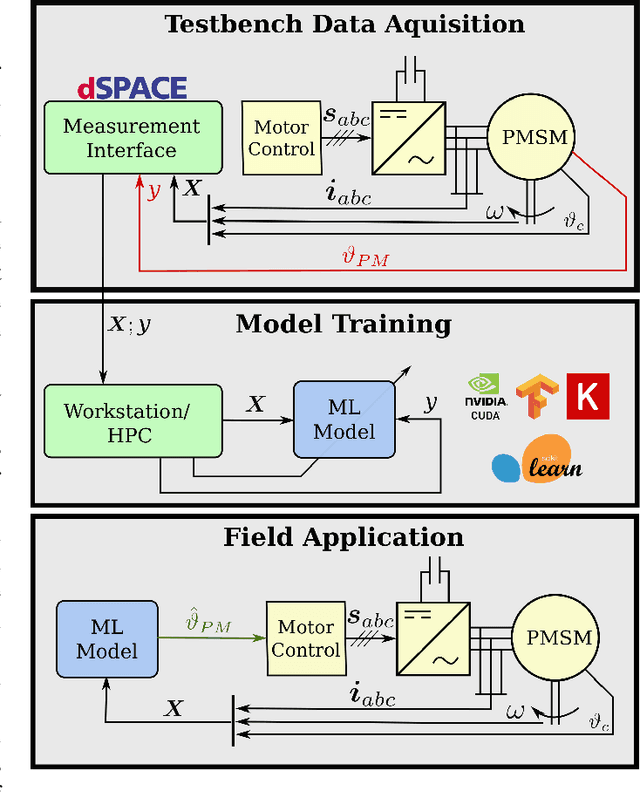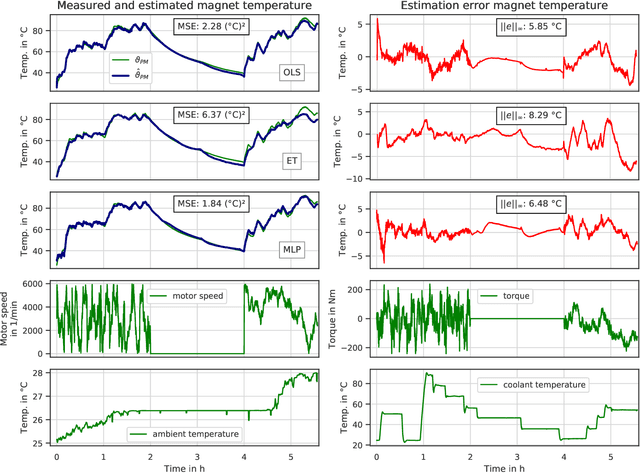Data-Driven Permanent Magnet Temperature Estimation in Synchronous Motors with Supervised Machine Learning
Paper and Code
Jan 17, 2020



Monitoring the magnet temperature in permanent magnet synchronous motors (PMSMs) for automotive applications is a challenging task for several decades now, as signal injection or sensor-based methods still prove unfeasible in a commercial context. Overheating results in severe motor deterioration and is thus of high concern for the machine's control strategy and its design. Lack of precise temperature estimations leads to lesser device utilization and higher material cost. In this work, several machine learning (ML) models are empirically evaluated on their estimation accuracy for the task of predicting latent high-dynamic magnet temperature profiles. The range of selected algorithms covers as diverse approaches as possible with ordinary and weighted least squares, support vector regression, $k$-nearest neighbors, randomized trees and neural networks. Having test bench data available, it is shown that ML approaches relying merely on collected data meet the estimation performance of classical thermal models built on thermodynamic theory, yet not all kinds of models render efficient use of large datasets or sufficient modeling capacities. Especially linear regression and simple feed-forward neural networks with optimized hyperparameters mark strong predictive quality at low to moderate model sizes.
 Add to Chrome
Add to Chrome Add to Firefox
Add to Firefox Add to Edge
Add to Edge